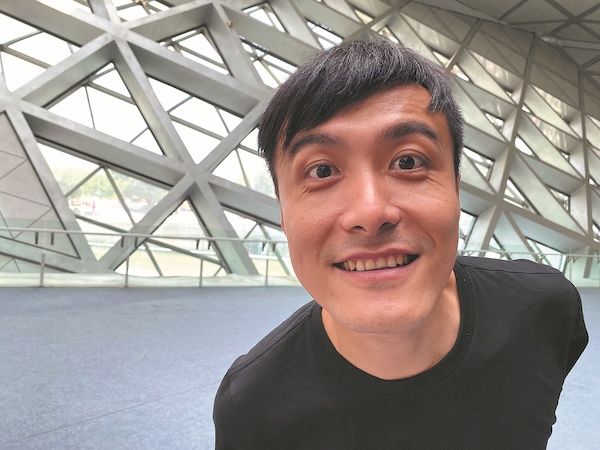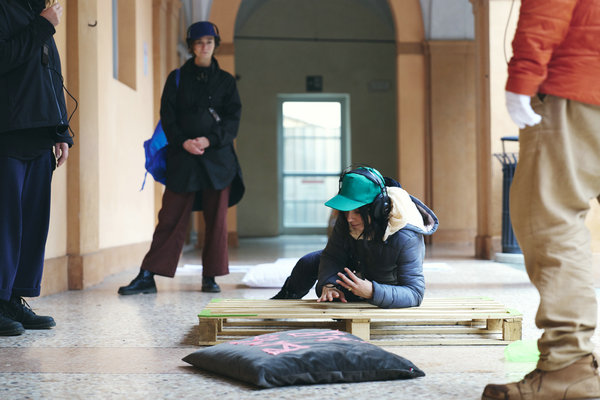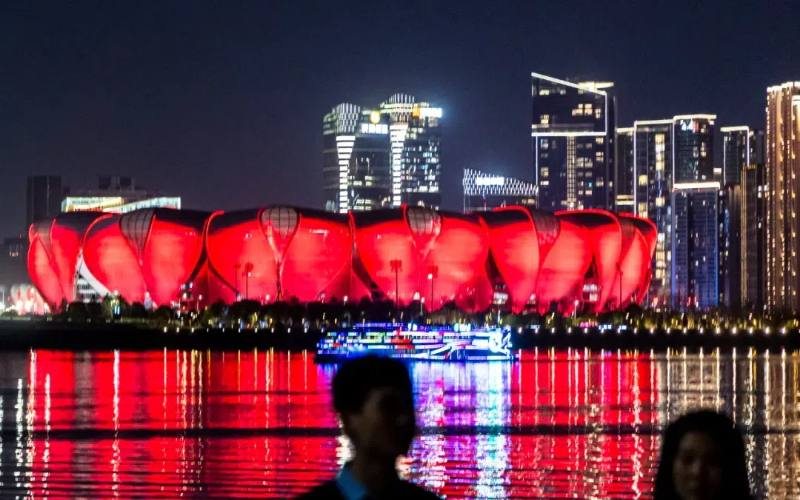Theater that goes flat out

Director Wang Chong. [Photo provided to China Daily]
Apart from using AI in theater, this production also realized his core vision of creating a piece where the audience members see the performance lying down.
During the show, the audience members start with a journey that resembles a meditation session, with the actors encouraging them to relax with soothing words, and go on to discover that the planet is a metaphor for death.
In the rehearsals, Wang and other crew members have given their answers many times to the show's questions. For example, when was the first time you thought about death, what would you do if you had only one minute to live, and what would you choose as your epitaph?
Just as their answers were getting repetitive, the production came as a pleasant surprise when it premiered in Wuzhen, proving itself a piece of documentary theater.
"Each performance has 22 strangers bringing their own life experiences. When the actors point a camera at them and interview them, they really do share their genuine thoughts and feelings. When they do, it is a very touching moment for me," Wang says.
"The content provided by the audience members has complemented the show. It gives an overview of the myriad facets of human existence, with their responses far exceeding our initial expectations. While the show's format offers an innovative experience, the more meaningful aspect is that we laid out a framework for the audience members to open up."
Timothy Pilotti, a Swedish actor, says after attending a rehearsal that the show allowed him to reflect on his own life. When asked to write down the moment that made him feel the most alive at the beginning of the show, he mentioned the moment he became a father.
"I personally like it when the show interacts with the audience in a way that makes them think. Then the theater show becomes more than just a show; it becomes an experience," Pilotti says.
"These days, when most young people have short attention spans, putting them in a show where they can experience it as a part of the performance is a really good way of making younger audience members more interested in theater."
Wang founded his theater troupe Theatre du Reve Experimental in Beijing in 2008, and his works have been performed in more than 20 countries. Around the same period as the Wuzhen Theater Festival, Wang is also having two of his works staged in Italy and Australia.

The Italian version of Wang's Where Do We Come From, What Are We, Where Are We Going 2.0 was staged at the Periferico Festival 2024 in Modena, Italy, early last month. [Photo/DAVIDE PIFFERI DE SIMONI/FOR CHINA DAILY]
One of the works, Where Do We Come From, What Are We, Where Are We Going 2.0, was staged in the seventh Wuzhen Theater Festival in 2019. Each performance of the production allows for only four audience members, who are required to wear headphones, follow the audio instructions and play the roles, in an exploration of migration in the era of globalization.
Massimo Mancini, general manager of Sardegna Teatro in Italy, first saw the production in Wuzhen and was impressed by the show's reflection on migration, the originality of the dramaturgical idea and the high-level audience participation.
Having followed up on Wang's works in the following years, Mancini invited him to Italy for an artist residency to see if it is possible to stage an Italian version of the production.
The production's Italian version, with Italian director Jacopo Panizza as the executive director, was staged at the Periferico Festival 2024 in Italy's Modena from Oct 4-12.
Another work of Wang's, Made in China 2.0, is an autobiographical account of his experience working around the world as a theater director, adopting augmented reality and real-time video. Having hosted more than 40 performances in five continents, it will be performed at Arts Centre Melbourne in Australia from Wednesday to Nov 16.
"Apart from a personal signature, I title my works '2.0' partly because of my exploration of combining technology with theater, and partly representing a constant upgrade and reinterpretation of classical themes," Wang says.
"I've always believed that as theater directors, we must put effort into upgrading ourselves and seeking innovation. Otherwise, theater art might be replaced by more stimulating entertainment forms. It is this sense of crisis and obligation that drives me to create immersive experiences, adopt technological innovation or produce documentary theater that addresses current issues."





 play
play